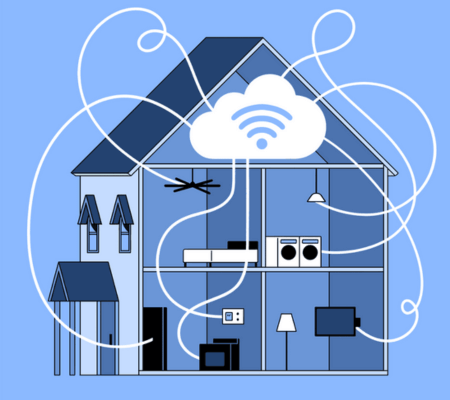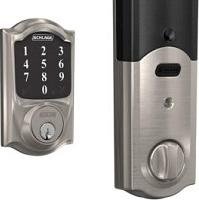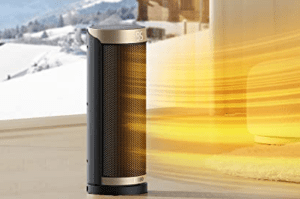
Table of Contents
ToggleRITE: New Build Heating Regulations
The latest modification of the Regulation of Thermal Installations in Buildings, also known as RITE, aims to meet the requirements of safety and efficiency in energy matters.
In the said modification of the regulations for gas boilers, the following aspects have been covered:
- Who is affected and to what extent?
- Characteristics of the new regulation of gas boilers
- Technical requirements of thermal installations
- What are the objectives of energy efficiency and renewable energies
Next, we are going to describe the specifications regarding these points of the regulations for gas boilers.
General Criteria of the Latest Regulation of Thermal Installations in Buildings
According to the latest RITE, the budget for a heating installation will have to indicate the energy characteristics of the gas boilers or heat generators used. In addition, each team must indicate the information that appears on the product sheet.
However, local heating devices and boilers powered by ecological fuels, that is, those that come from garbage residues, excrement from farm animals, etc. will be, for the time being, exempt from said regulation.
However, this type of residual energy that comes from the agri-food industry can only be used when it is generated without altering its composition. In the event that its composition or the use we give it is harmful, it cannot be used as it will be harmful to the environment.
As a last aspect of the general criteria, it is important to clarify that the installation of gas boilers and heaters of up to 70 kW and type B is prohibited. This type of boiler is intended to be connected to a duct that is located outside the room where it is installed.
In addition, it is important to clarify that there are some exceptions to the regulations. One of them is if the boilers are located on premises that meet the requirements established for engine rooms. The other exception is in the case where the heaters are located in an outdoor area.
Energy Efficiency and Justification: Requirements
The European Union is aiming for energy efficiency and less reliance on harmful fuels. Therefore, what is wanted with this modification of the regulations is the promotion and development of a better design, manufacture, installation, use, and maintenance of thermal installations.
The idea is that the development and special care of these aspects reduce greenhouse gas emissions and other related pollutants. For this reason, the energy efficiency of heating systems that allow energy recovery and the use of renewable and residual energies are linked to issues such as the type of equipment, regulation, control, and accounting.
According to the RITE, the important points to take into consideration are the following:
Modification of the RITE |
|
| 1 | ✓ Energy recovery |
| 2 | ✓ Use of renewable energies and use of residual energies |
| 3 | ✓ Consumption accounting |
| 4 | ✓ Consumption regulation |
| 5 | ✓ Teams |
| 6 | ✓ Fluid distribution |
| 7 | ✓ Issuers |
It should be noted that the update of the RITE requires that the installation of heating systems be duly justified in the event that conventional ones are used instead of more sustainable and efficient ones.
When presenting this justification, we must also accompany it with a comparison between the chosen traditional energy production system and other systems that are viable and in accordance with the new regulations and their energy efficiency objective.
- Relative humidity and operating temperature conditions
The RITE also speaks of the importance of thermal comfort and the well-being of individuals. These concepts are related to the typology of metabolic activity, such as sedentary activity and the values different from said activity.
Within the group of people who have sedentary metabolic activity, we refer to people who frequently do not make much effort. An example of the people who are part of this group is the elderly or people with limited movement in general. Many of them have limitations regarding their physical activity.
This will influence, for example, when installing heating and gas boilers. The installers will have to take into account these characteristics to carry out the installation of gas boilers.
Below, we present a table that will help us better understand the degrees of temperature and humidity that are taken into consideration according to the latest regulations on gas boilers and thermal installations for buildings.
| Interior design conditions according to the RITE | ||
| Station | Humidity % | High-temperature °C |
| Winter | 40-50 | 21-23 |
| Summer | 45-60 | 23-25 |
The regulations are clear, any installation must follow the cooling and heating temperature requirements according to the season of the year in which we find ourselves. The table explains that, on the one hand, in the case of refrigeration systems, the required temperature ranges from 23°C to 25°C. On the other hand, the temperature required when dealing with heating systems ranges from 21°C to 23°C.
For more details on this subject, it is always advisable to request information from qualified and approved installers.
Do you need a new boiler or heating system for your home?
ASK FOR BUDGETS WITHOUT COMMITMENT!
Inspections of Heating Installations
The new RITE regulations emphasize the issue of inspections, reviews, and maintenance of gas boilers. In other words, there will be a more rigorous system in relation to the phases and types of heating systems that are installed.
First of all, inspections will be carried out only by authorized entities or companies. The corresponding Autonomous Community will periodically publish lists with the names of companies or entities that are approved.
These lists will contain information on accredited entities and companies that offer competent services by experts in the field so that inspections of gas boiler installations are carried out under all legality and on a regular basis.
Below, we present a table with the type of inspections and installations in heating matters established by the latest update of the RITE.
| Inspections of heating installations | |
| Type of inspections according to the RITE | Type of facilities |
| Initial inspection | of gaseous fuels |
| Installation inspection in operation | Thermal (including solar) and heat and cold generation equipment |
In addition, depending on the type of equipment, periodic technical inspections will be implemented. In the following table, we will see the segmentation made by the new RITE regulations.
| Periodicity of heating inspections | |
| system type | Periodicity |
| Heating and Sanitary Hot Water | Every four years |
| Combined (heating and DHW) with power greater than 70 kW | periodical |
The inspection of complete thermal installations will have to be done every fifteen years.
Gas Boiler Maintenance
The maintenance of gas boilers and other installations subject to the last modification of the Regulation of Thermal Installations in Buildings will be carried out by authorized companies. These will be responsible for ensuring that the maintenance of the installation complies with the stipulated standard in its entirety.
Next, we present a table that describes the periodicity of preventive maintenance.
| Preventive maintenance of gas boilers and heaters according to RITE | ||
Equipment and nominal powers |
Usos | |
| Households | Others | |
| ✓ Gas DHW heaters Pn ≤ 24.4 kW | 5 years | 2 years |
| ✓ Gas DHW heaters 24.4 kW < Pn ≤ 70 kW | 2 years | Yearly |
| ✓ Wall-mounted gas boilers Pn ≤70 kW | 2 years | Yearly |
| ✓ Other heating installations Pn ≥70 kW | Yearly | Yearly |
Certificates of Control, Maintenance, Infractions, and Sanctions
Users must take into account that all thermal installations, such as gas boilers, must have records and certificates that prove their suitability to work. To understand it, the installers must prepare an installation or revision and maintenance certificate for us, as if it were an ITV. With this certificate, we know that our gas boiler and our heating comply with the regulations and will not cause accidents or damage to people.
Some accidents that you want to avoid with these revisions and maintenance are the possibility of explosion. Also bad combustion of the gas and cause death due to lack of oxygen, etc.
With regard to the requirements of the Regulation of Thermal Installations in Buildings, the regulations are clear. There is a record of maintenance or operations carried out that must be kept for a period of not less than five years. It should be clarified that this period will count from the date on which the maintenance was performed.
In addition, the maintenance certificate will have a maximum validity period of one year. Taking into account that the RITE itself states that maintenance must be carried out every 2 years in the case of domestic gas boilers.
The updated document of the Regulation of Thermal Installations in Buildings is clear in case of non-compliance with the standard. Next, we present a table with the serious infractions.
Violations of gas heating according to the RITE |
|
| Aspect | Reason |
| Startup | ✓ Commissioning of facilities without having the required documents |
| Maintenance | ✓ Not having maintenance contracts with authorized companies when it is mandatory |
| fake certificates | ✓ Issuance of false certificates or the like or that do not conform to reality |
| Unregulated documents | ✓ Documentation that does not follow the established prescriptions |
| incomplete documents | ✓ Inspections or related documentation carried out incompletely or inaccurately |
| false data | ✓ Inaccuracies, falsehoods, and omission of data on compliance with the established requirements |
| Non-approved installers | ✓ Exercising activity without complying with the requirements or without prior notice |
| Unauthorized operation | ✓ Continue with the operation of the facilities without having passed the periodic inspection |
| Non-compliance with regulations | ✓ Failure to comply with the requirements and causing a serious risk to people or the environment |
| Recidivism | ✓ Recurrence of any infraction within two years |
| Do not provide information | ✓ Refusal to provide information to inspectors |
At Hogarsense we always recommend that the advice of an expert represents great value , since in addition to acting within the law, the knowledge acquired through their experience is invaluable.
Each company that is authorized to install, maintain and repair energy in buildings will bear the responsibility that everything is done under the greatest legality possible and always in accordance with the latest updates of the Regulation of Thermal Installations in Buildings. If this is not the case, the sanctions will be severe.
Related










